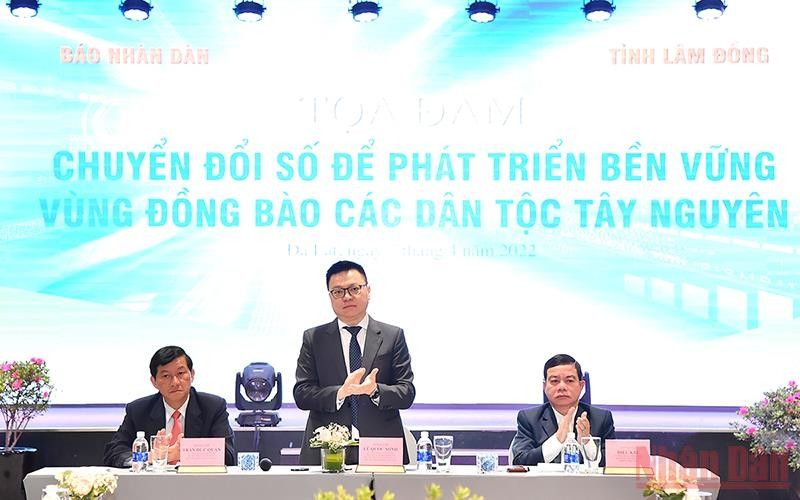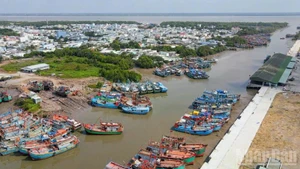The event was co-chaired by Party Central Committee (PCC), Nhan Dan’s Editor-in-chief and Deputy Head of the PCC Commission for Communication and Education Le Quoc Minh; Secretary of Lam Dong Provincial Party Committee Tran Duc Quan; and Deputy Standing Secretary of Dak Nong provincial Party Committee Dieu K’Re.
In his opening speech, Minh, also Chairman of the Vietnam Journalists’ Association, emphasised that digital transformation is considered an inevitable trend and is the "key" for the agricultural sector and localities to seize new opportunities in the post COVID-19 pandemic era, while enhancing their sustainable development.
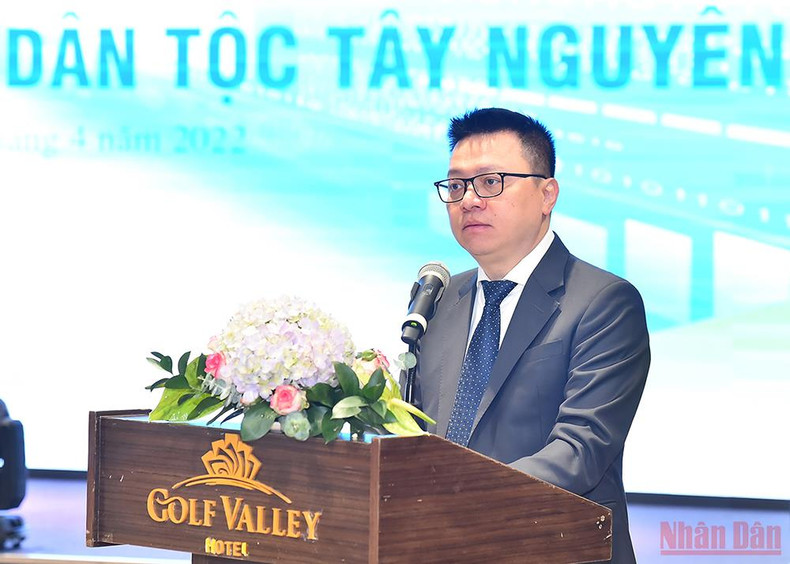
Editor-in-Chief of Nhan Dan Newspaper Le Quoc Minh speaks at the seminar. (Photo: Thuy Nguyen)
He informed the participants that among the 34 national digital platforms that the Government has eyed to develop in 2022 in order to perfect the infrastructure for building the digital government, digital economy, and digital society, there are nine serving the agricultural sector, including a digital data platform on agriculture, an agricultural product traceability, an agricultural e-commerce platform, and a supply chain optimisation platform.
This shows the great determination of the Government, as well as ministries and localities in further promoting digital transformation, he said.
He noted that the successful implementation of digital transformation and the creation of a sound connection between digital agriculture, digital rural areas, and digital farmers requires not only the participation of a single ministry, sector or locality, but also the involvement of many other actors, including the press.
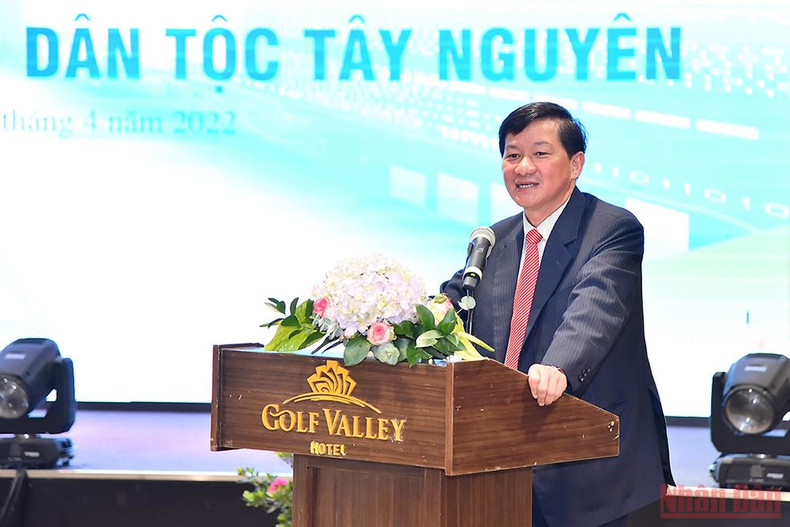
Secretary of the Lam Dong Provincial Party Committee Tran Duc Quant speaks at the seminar. (Photo: Thuy Nguyen)
For his part, Secretary of Lam Dong Provincial Party Committee Tran Duc Quan said that soon after the Government approved a national digital transformation programme in 2020, Lam Dong province mobilised resources to implement the programme.
He reported that 21 businesses and numerous farmers in Lam Dong have adopted smart agriculture in their operations, adding that the provincial authorities plan to promulgate a resolution on digital transformation in agriculture which works out a suitable roadmap for the process.
He expressed his hope that experts, scientists and delegates at the seminar would analyse and clarify the situation and provide solutions to help localities in the Central Highlands foster digital transformation in agriculture, especially in ethnic minority areas.
At the seminar, experts and managers added that digital transformation in agriculture has received great attention from provinces in the Central Highlands, with technological programmes and projects in agricultural production having been well implemented in the region.
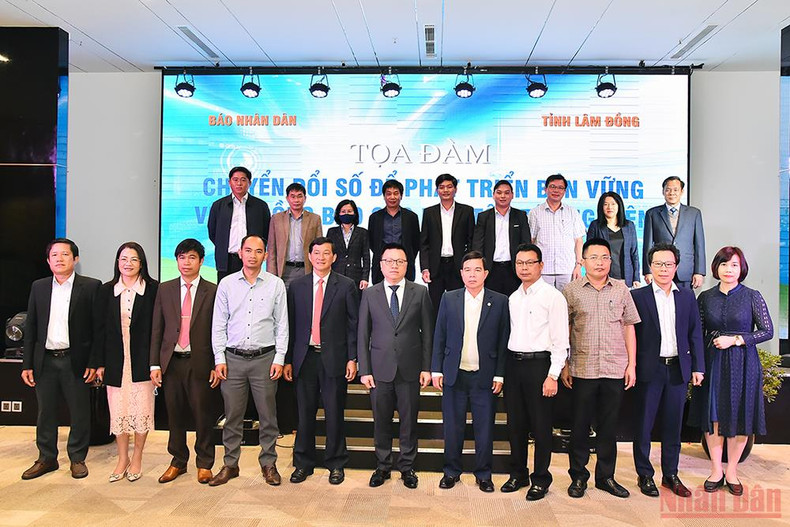
Leaders of Nhan Dan Newspaper, Lam Dong province and Dak Nong province and delegates at the seminar pose for a group photo. (Photo: Thuy Nguyen)
More encouragingly, the digitalisation of agriculture has been gradually spread to remote, isolated and ethnic minority areas in the region.
They agreed that now is a “golden” time for the restructuring and digital transformation of agriculture, since localities, businesses, cooperatives and farmers have taken appropriate approaches to science-technology, smart agriculture, and have created many breakthroughs to advance agriculture toward rapid modern and sustainable development.
In his concluding speech, Editor-in-Chief Le Quoc Minh emphasised that the seminar provided a lot of information in terms of both theory to practice, many close-up perspectives and suggested many solutions to overcome all difficulties to successfully implement digital transformation, especially in the agricultural sector of the Central Highlands.
He underscored that it is necessary to have a strategy suitable for each locality with comprehensive preparation of technical capacity, quality human resources, and the strengthening of the replication of key models.
He added that regarding the ecosystem of Nhan Dan Newspaper, including printed newspapers, radio, a television channel and online newspapers, the topic of high-tech agriculture is always focused on in its communication with long-term articles and analysis on the challenges and opportunities associated with sustainable development from high-tech to smart agriculture.
